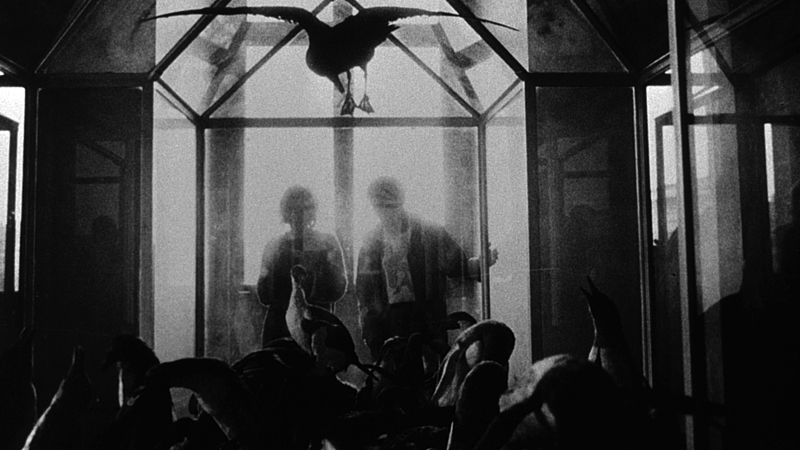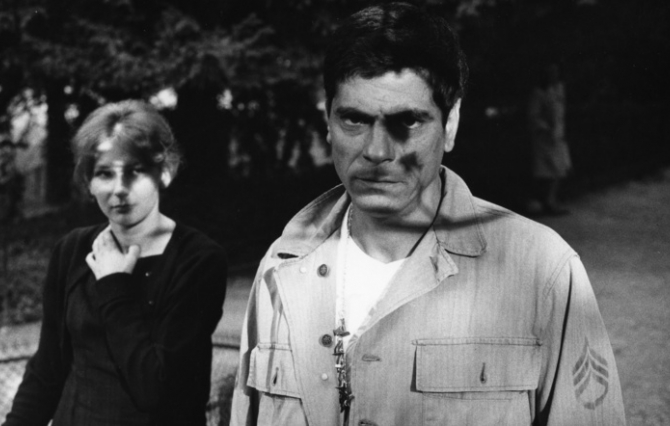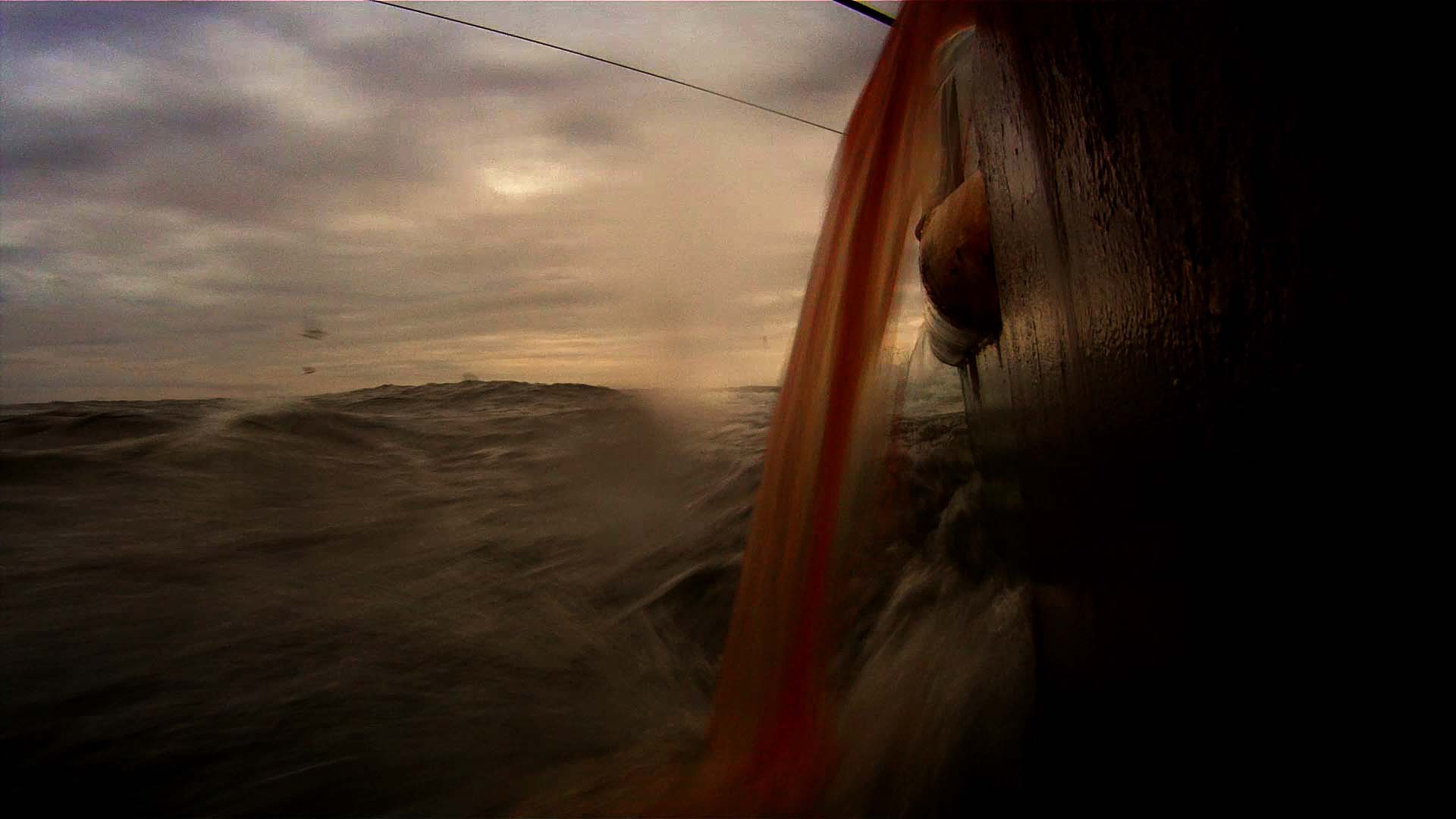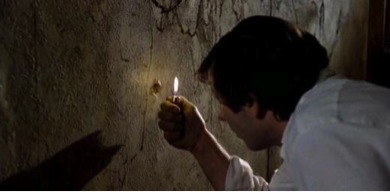Edinburgh-based graphic artist Edward Ross uses comics to guide the reader through cinema's history and to illustrate the ideas and concepts behind classic and cult films. If you are a Filmhouse regular, you might already be familiar with his insightful comic book essays on film theory - intelligent yet accessible (and downright fun) pamphlets that tackle subjects as diverse as food on film, point of view and set design.
Read Morefilm
'How We Used To Live' & Saint Etienne at NFT1 / Paul Kelly interview excerpt

Blasted first encountered director Paul Kelly's work with his 2011 portrait of former Felt frontman Lawrence. This summer, his 2013 film How We Used To Live has been on tour with a live soundtrack performed by Saint Etienne, including a screening back in May for Monorail Film Club at the GFT. An email from the Film Club prompted us to look further into Kelly's work and a filmography - whether you are a fan of Saint Etienne or not, his London Trilogy made in collaboration with the band, and the complementary short films, are essential viewing
Read MoreRemembering: Chris Marker's 'La Jetée'
A year on from Chris Marker's death, Andrew R. Hill looks at his revolutionary and influential short La Jetée.
Image courtesy of Criterion.
Chris Marker’s La Jetée (1962) is both one of the simplest and one of the strangest science fiction films you are ever likely to see, but to pigeonhole the film with such a generic marker is arbitrary and simplistic – while time travel is central to the story, it serves as a narrative device to explore the natures of memory and obsession.
The form of La Jetée is extraordinary even now, over fifty years on: a sequence of black and white stills narrated in a brooding Gallic third person monologue (augmented by minimal diegetic sound effects) over the course of twenty-seven minutes. This can seem pretentious or just downright dull on initial approach but one settles into it fairly quickly. The film opens with a scene that haunts and obsesses our protagonist from its occurrence in his childhood through to the post-apocalyptic Parisian ‘present’. The man at the story’s centre is used by the victors of the Third World War as the subject of an experiment in time-travel – humanity’s spatial options have expired, only temporal ones remain.
Image courtesy of the BFI.
The man has to travel to the past by using his memory – it is surely for this reason that the film’s imagery is presented as it is, for what is a photo if not a memory? This film is a photobook in which the man returns to the time of the film’s opening sequence, the event that has obsessed him his whole life. Through the experiment the man enacts a strange courtship with a young woman that was there on the day seared into his memory, albeit then a stranger.
On one of their meetings (separated by gaps in her time, as well as his, as they are) they visit a cross-section of a giant redwood with historical events pinpointed on its rings, just as in Alfred Hitchcock’s 1958 masterpiece Vertigo; this explicit reference unveils other key notions at the centre of the film, the sometimes traumatic nature of memory, male obsessiveness and the dangerous effects both can have, particularly when they coincide. The idea of being ‘haunted’ or of ‘haunting’ are unavoidably applicable in analyses of Vertigo and so it should be for La Jetée; James Stewart’s Scottie is haunted by his ‘lost’ Madeleine (in itself a reference to Marcel Proust’s À la recherche du temps perdu) just as La Jetée’s protagonist is haunted by the day from his childhood, and just as he haunts the young woman through their unusual courtship, appearing and disappearing as if an apparition. As with Vertigo, the film concludes with a fatality that could have been avoided were it not for the protagonist’s selfish single-mindedness. La Jetée’s images haunt the viewer too, lingering on to unveil their truth in the memory.
Ben Wheatley's 'A Field in England'
Ben Wheatley is back with A Field in England: having loved his twisted and very funny previous offering (Sightseers), this was a film the staff at Blasted were very much looking forward to.
And what a release it was – in a unique and brave move, the film was simultaneously in cinemas, on television, as well as being available on DVD and VoD. A pretty successful strategy, according the numbers recently released on the Screen Daily website.
Image courtesy of the BFI.
A Field in England is, in the words of Wheatley, an attempt at making a 'wilfully strange […] midnight movie'. As I watching the film in Edinburgh's Cameo cinema last Friday, I was reminded of the Panic Movement films (Alejandro Jodorowsky's El Topo in particular): it is a psychedelic period drama that is not afraid of playing with form and perceptions.
On a very basic level, it is the story of four men who finds themselves abducted by an alchemist during the English Civil War. The film starts slowly, the script feels a little opaque, and not much is explained – it is easy to see why a viewer could quickly get frustrated. Indeed, A Field in England is not a work that will ever have mass appeal, but if one is willing to stick with it, it has some pretty wonderful rewards. It is shot in a glorious, at times almost ravishing, black and white that glorifies texture and lines (something that we maybe wouldn't expect from a psychedelic film); with its mix of traditional folk music and menacing synth/ambient sounds, it is also very interesting on an aural level. Like many of the 1960s/70s 'midnight movies' Wheatley mentions, this film is formally rather daring – we have a character singing traditional ballad Baloo My Boy straight to camera, and the narrative is disrupted by little tableaux where the characters are very still, and create an effect that is almost painterly. This is without mentioning the 10-minute 'bad trip' sequence near the end; although at times it verges on visual cliché, it is something powerful, and not necessarily all that easy to watch. Ultimately though, A Field in England doesn't take itself too seriously; as in Sightseers, moments of humour (and of, quite literally, toilet humour) abound. It should also be noted that he protagonists are all played by actors who are known to the majority of the public for comedy, with Reece Shearsmith and Michael Smiley pulling particularly striking performances. It has to be said that character development is not the film's greatest strength, although the multi-layered aspect of the script could definitely benefit from multiple viewings.
Ben Wheatley has put together something rather unique a possible quite divisive; for all its indulgence, A Field in England is a film that defies genre definition (as far as period dramas go, its closest relative is perhaps Brownlow/Mollo's monochrome docudrama Winstanley) and makes a virtue out of representing sheer madness and chaos.
A Field in England is available on DVD on VoD.
EIFF 2013: A Story of Children and Film →
EIFF 2013: Blackbird →
EIFF 2013: Leviathan →
Review: 'In The House'
Found Footage Festival
When I was a student at Glasgow University, I found an abandoned box on the pavement near my flat on West Princes Street. The box contained notebooks, gig and cinema tickets, and lots of photographs. I was of course immediately fascinated my with my new treasure and tried to join dots and build a story around those discarded fragments. Who were those people? Why had the box been chucked?
Although a bit less dreamy, the spirit behind the Found Footage Festival is in a similar vein. Founded in 2004 by Joe Pickett and Nick Prueher, the festival is essentially a comedy event that features VHS tapes gathered at second-hand shops, flea markets and jumble sales. The videos are often comical (a highlight of the current tour is a 1996 tape that teaches viewers how to care for their ferret), and sometimes very weird (I am personally intrigued by The Sexy Treadmill Workout).
The FFF has been growing steadily for the past 9 years, and it easy to see where its charm lies. It is a celebration of how bizarre the everyday lives of ordinary people can be. Those VHS tapes are, in the words of organiser Nick Prueher, "A more truthful representation of who we are as a people than the greatest films of the last 75 years".
The festival is currently touring the UK, so catch it at Edinburgh's Cameo Cinema at 9pm on Wednesday 20 March or at Glasgow's Grosvenor Cinema at 9pm on Thursday 21 March.
Follow @FoundFootage on Twitter and YouTube.














